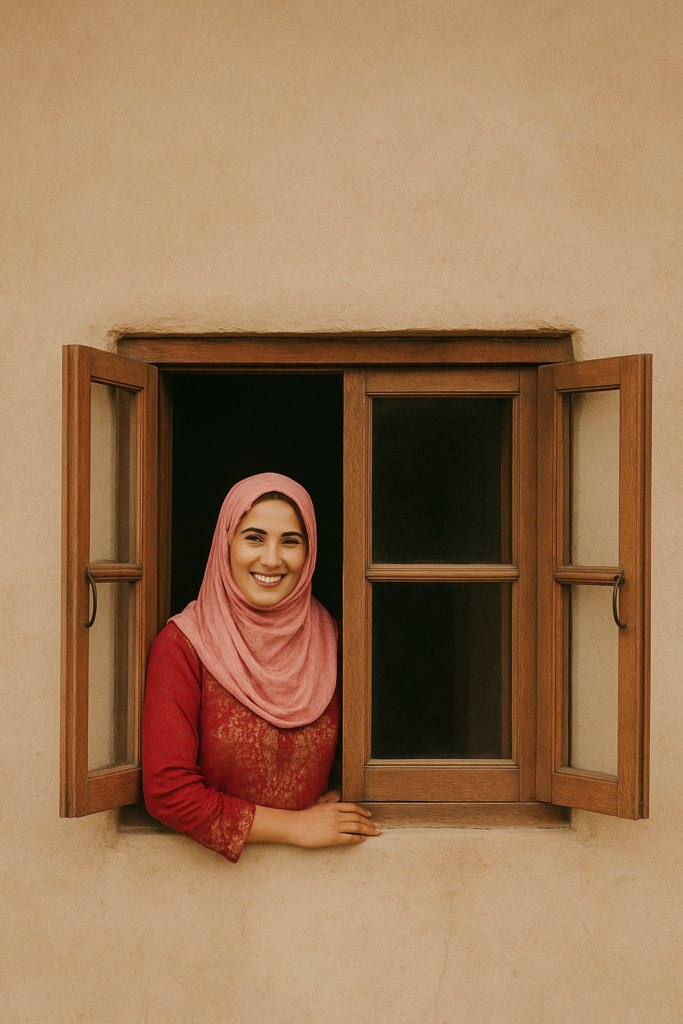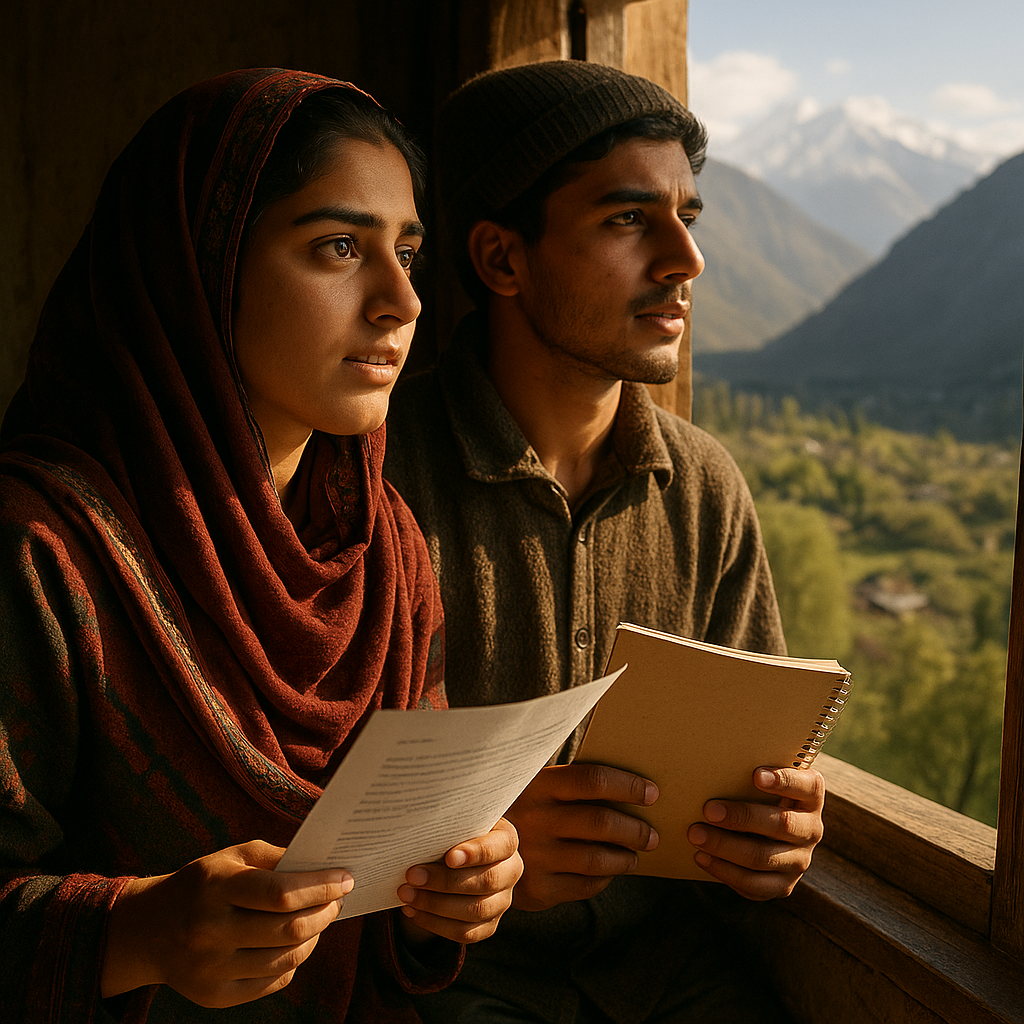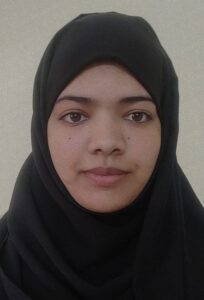Government schemes are opening small but crucial windows of opportunity for Kashmir’s women and youth.
By Shafiya Wani
Kashmir is not just a place on the map. It is a feeling, a wound, a memory, a heartbeat. For those of us who have grown up here, empowerment was never about big speeches or government slogans. It was about survival—about finding one reason, however small, to believe in tomorrow.
For decades, we were taught to adjust, to endure, to be grateful for the bare minimum. But something in the air is changing. There is a restlessness in our youth, a new confidence in our women, and a quiet rebellion in our silence. It does not mean everything is fine. But it does mean we are no longer content with waiting.

Kashmir has always been a land of stories—of silence, resistance, and waiting. In recent years, new stories have begun to unfold. Not the kind that erase pain, but the kind that carry the faint promise of a different tomorrow. Away from the din of politics, subtle but powerful changes are shaping the lives of women and young people. Much of this shift is tied to government schemes introduced during the Modi government—initiatives that on paper may look like policy jargon but, in reality, are altering lives in the valley.
For years, Kashmiri youth lived with a heavy stillness: education without employment, skills without platforms, dreams suspended in fear. Women were often seen more as keepers of family honour than as holders of ambition. Today, that script is slowly being rewritten. In villages, girls are setting up tailoring units instead of waiting endlessly for a government job. Boys from remote areas are training in digital skills. Women are forming self-help groups, learning to stand for each other—and for themselves.
Schemes like Start-Up India, Skill India, MUDRA Yojana, PMEGP, Mission Youth, and Tejaswini are making their way from official files into lived experience. Behind each policy name is a story of courage and small beginnings. In Anantnag, a young woman used the Tejaswini scheme to open a beauty parlour. Her journey was not just about earning an income; it was about reclaiming a space once occupied by silence.
For the youth, Mission Youth has been more than a training platform—it has been a source of dignity. In a place where hopelessness has often cast long shadows, these initiatives are offering a hand—not to foster dependency, but to help people stand on their own feet. Real empowerment, after all, is not about loud celebrations; it is about quiet revolutions.
Among women-centric efforts, the UMEED scheme under the Jammu and Kashmir Rural Livelihoods Mission has been particularly transformative. UMEED brings women together in self-help groups, giving them access to bank credit, training, and a reason to imagine themselves as entrepreneurs. From dairy farming in Kupwara to pickle-making in Pulwama, these women are not seeking charity. They are demanding opportunity—and making the most of it. For many, even stepping out of their homes for a group meeting is the first step towards an independent identity. In a society where mobility has been tightly guarded, that first step is nothing short of revolutionary.
Yet, it would be naïve to romanticise the moment. Unemployment still looms large. Gender bias remains entrenched in homes and workplaces. Many women are still denied choices, and many dreams are dismissed as “too big.” But alongside these realities is a growing conversation about self-reliance. The sight of women leading local rallies or young men from Shopian becoming software developers is no longer unthinkable.
On a personal level, I think back to my own journey as a Kashmiri girl—how even imagining a life beyond set boundaries felt like rebellion. Now, when I see girls attending digital marketing sessions or browse through stalls at local entrepreneurship fairs, I feel something in me healing. It is as if the valley, too, is learning to breathe differently.

These schemes are not perfect, nor are they the cure to Kashmir’s deep and complex challenges. But they are windows—windows letting light into rooms that have been locked for generations.
The real question is: what will we do with that light? Will we let it fade, or will we hold on to it, multiply it, and pass it forward?
To the young women reading this: your voice matters. Your ideas matter. You do not need permission to dream. And to every Kashmiri youth who has felt invisible or unheard—know this: this land needs your courage, your creativity, your fire.
The schemes may have come from Delhi. But the transformation—that is ours to own, ours to build.
Because empowerment is never handed over like a gift. It is claimed. And perhaps, after a long and painful wait, Kashmir is beginning to claim it.
The views expressed in this article are solely those of the author and do not necessarily reflect the opinions or views of this Magazine. The author can be reached at [email protected]

Leave a Reply